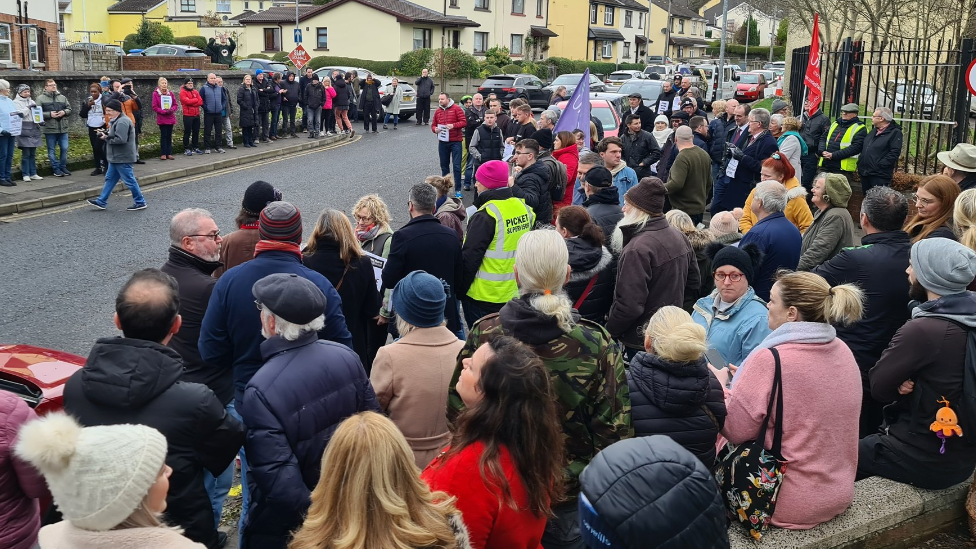Radio Foyle: Politicians and BBC hold talks about cuts
- Published
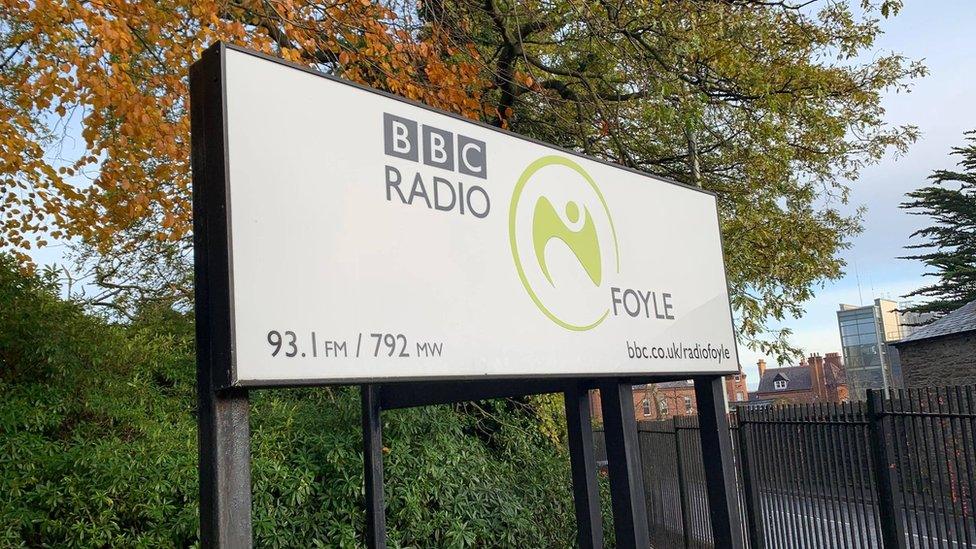
BBC Radio Foyle was founded in 1979 at the height of the Troubles to provide more localised coverage of Derry
Politicians from the north west of Northern Ireland have met BBC management in London to discuss proposed cuts to BBC Radio Foyle.
The proposals are part of a wider plan to close 36 posts across BBC Northern Ireland, with eight news staff at risk of redundancy at Radio Foyle.
Output including the Breakfast Show and hourly news bulletins would be cut.
Mayor of Derry City and Strabane Sandra Duffy described the meeting on Wednesday as a "frank and open".
She told BBC Radio Foyle it was vital management understood the station was "a very unique station that serves a very unique population".
In a statement, the BBC said the meeting had been "useful and informative".
"It was an opportunity to listen to concerns and to explain our ambitions for Foyle and the service that it provides. Our conversations with BBC staff and the trade unions are ongoing," the BBC said.
There have been protests from politicians, clergy and community leaders in Londonderry about the plans.
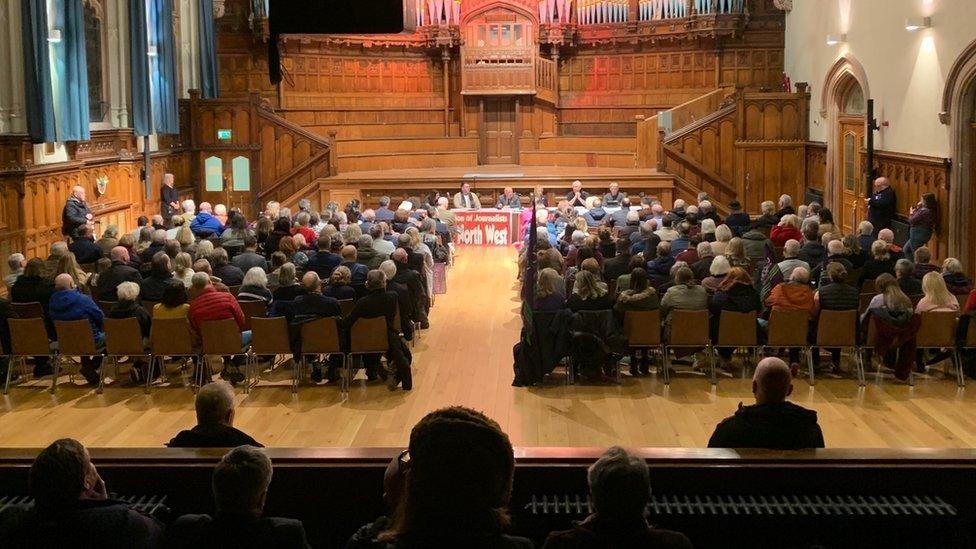
About 250 people attended a public meeting in Derry's Guildhall earlier this month to protest against proposed cuts to BBC Radio Foyle.
Mrs Duffy, Foyle MP Colum Eastwood and East Londonderry MP Gregory Campbell met BBC NI interim director Adam Smyth and director of nations Rhodri Talfan Davies to voice opposition to the corporation's plans.
Social Democratic and Labour Party leader Mr Eastwood said there had been "a very straightforward approach".
"They need to hear that Derry and the north west is different, we have our own politics, our own identity, Radio Foyle is an anomaly within the BBC but it is there for a reason," he said.
Derry's mayor said she hoped BBC management had taken the "robust case for scrapping the cuts onboard".
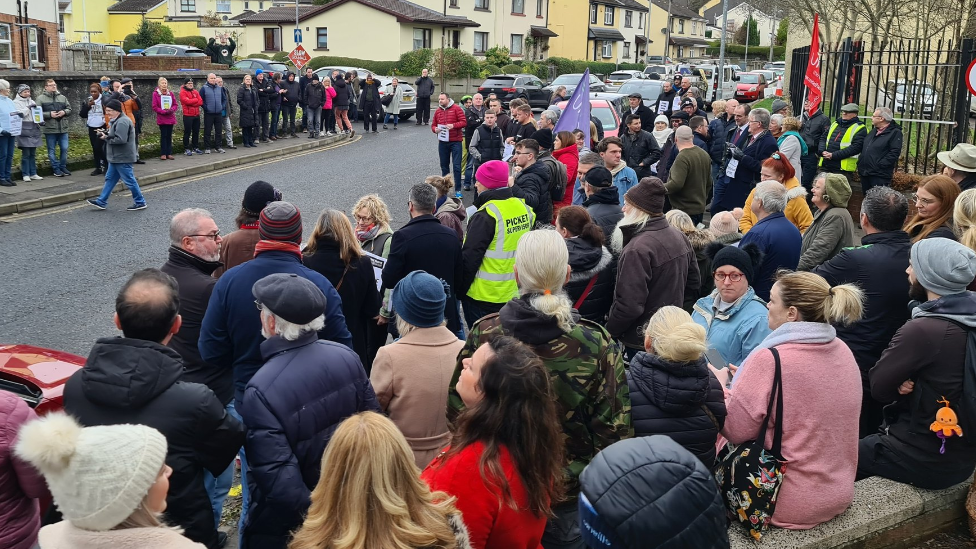
Protestors gathered outside the Radio Foyle station on Northland Road in November.
Mr Campbell said Radio Foyle demonstrated the "invaluable nature" of a local radio station, giving the example of the recent spell of snow and freezing temperatures in the north west.
He said he understood the BBC was operating in tough financial times and must adjust with audience habits, but warned against the broadcaster becoming "a BBC Greater Belfast".
When the cuts were announced in November, the BBC said its plans reflected "a BBC-wide strategy to prioritise digital content, announced earlier this year, and the need to manage inflationary and other cost pressures".
- Published29 November 2022
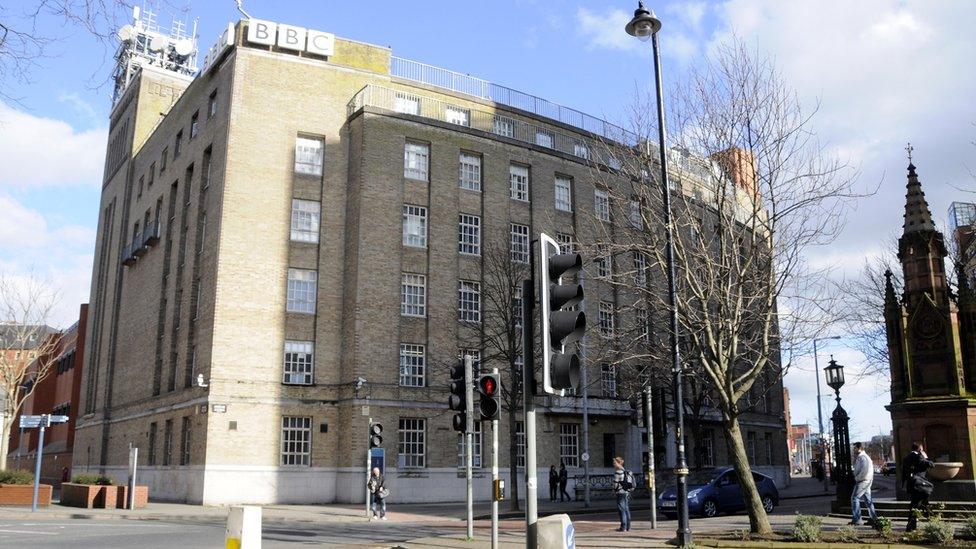
- Published30 November 2022
